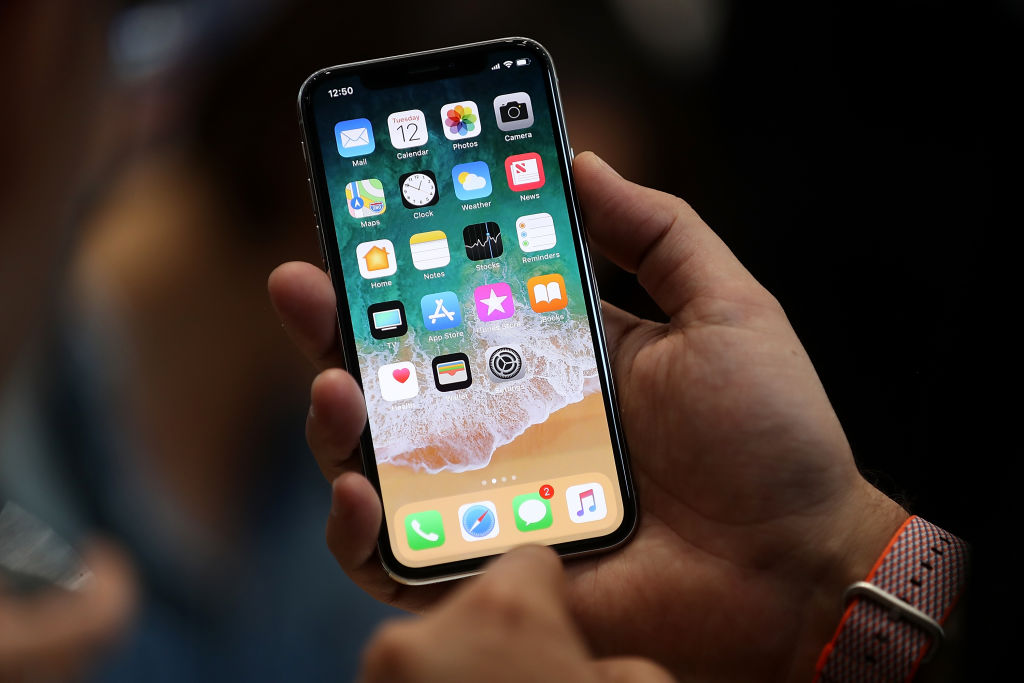Around the time my eldest son started secondary school, I had a worrying glimpse into his private life. We’d put him to bed at 9 p.m. but asked that he leave his mobile, one of my old iPhones, downstairs next to me. I was horrified to see the non-stop barrage of messages coming in as late as midnight. These children – all just 11 or 12-years-old – clearly were not asleep as they should have been on a school night. Other parents, with children as young as six, say they’ve experienced similar realisations.
I heartily wish my son’s school had banned smartphones during the school day, something the government has now said it will ask schools to consider. The reason we’d grudgingly let our son trade in his brick for a smartphone was because by not having one he was missing out on nearly all of the social side of school – party planning, homework, gossip and everything else that children get up to was happening on WhatsApp. Much as I didn’t want my son to have a smartphone, I also didn’t want him to end up virtually friendless and unaware of the social gatherings happening outside of school. We were able to limit his tech exposure at home, but once at school I could tell he was distracted most of the time and there was nothing I could do about it.
Kids taking their smartphone to bed are not going to get a good night’s sleep. This will negatively impact not only their ability to pay attention at school the next day, but their physical and mental health too. Being alone with a phone makes them more susceptible to cyber bullies and online child sexual exploitation. It’s like going to bed but leaving the front door wide open. You just wouldn’t do it.
Together with Anna Firth, another concerned mum who’s now MP for Southend West, I started the ‘digital sunset’ campaign, which spelt out the disadvantages to young brains of being ‘on’ the whole time and encouraged entire class and year groups in primary school to switch off phones each night at an agreed time. This, we reasoned, would get rid of the FOMO – the fear of missing out – on all those exciting online chats. If all your friends were offline, it was safe for you to be too.
Much as I didn’t want my son to have a smartphone, I also didn’t want him to end up virtually friendless
Teachers loved it, most parents loved it too. Sajid Javid, then Communities Secretary was kind enough to come and launch it for us locally in Sevenoaks, Kent where we both lived. After a flurry of interest from other primary schools we tried and failed to gain traction with any level of government to fund this and roll it out nationally.
If you’re reading this and thinking that surely it’s the parent’s rather than the government’s job to limit children’s phone use then yes, you’re absolutely right. But parents need help. Given how troubled today’s youngsters are, I think maybe smartphones should come with a warning, much like cigarette packets. A few guidelines such as ‘too much phone-use can damage your children’s mental and physical wellbeing’ and ‘try switching off all phones at night at an agreed time to allow a good night’s sleep which will improve your overall health and wellbeing’. I think it’s time for a public safety campaign to help educate parents on safe phone-usage for them and their children. Yes it’s ‘nanny-stateism’ but our young people need protecting from this digital onslaught and sometimes that needs to come from the top.
And for those who say that the government shouldn’t be doing the job of parents, I say this: we already routinely feed those unfortunate children who are sent to school hungry. A friend who’s a primary school teacher is currently despairing over the number of children coming into Reception who cannot speak properly, use cutlery or even use the toilet. She estimates that 10 per cent of the intake in her school alone are still in nappies. We step in when the damage being done is too enormous and obvious to ignore. With smartphones and children, that time is now.






Comments